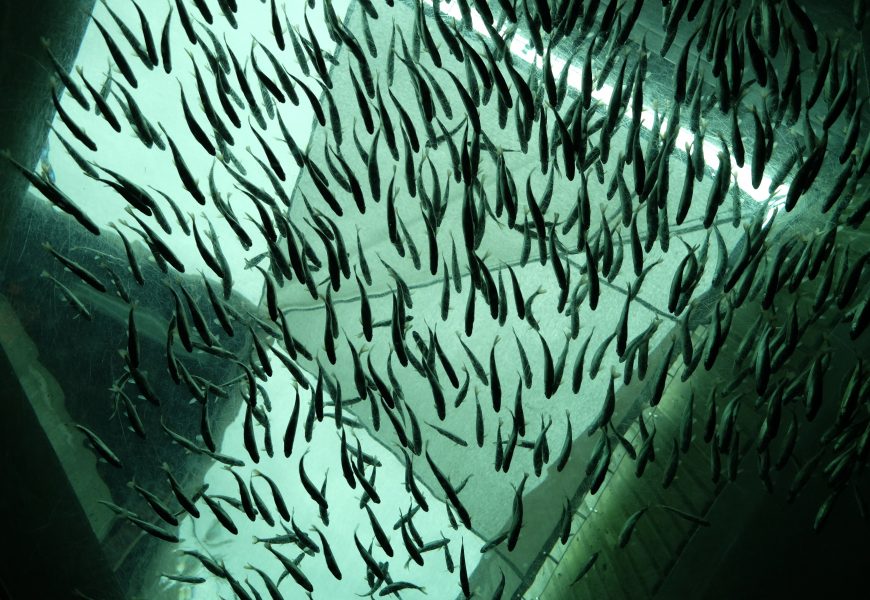The researcher from EfD-Chile Jorge Dresdner together with co-authors, Roberto Cárdenas and Adams Ceballos, studied the effects of the aquaculture industry on income distribution in coastal communities in Chile and what they discovered is something very interesting.
By Cristóbal Vásquez / cristvasquez@udec.cl / Photographies: Courtesy of EfD
Low-skilled work in the processing stage, unequal division of labor by gender, poor working conditions and risks to the environment are some of the negative perceptions of the community regarding the salmon industry.
However, the impact that salmon farming has on income distribution in rural areas has not been extensively studied. In fact, the senior researcher of the Network of Research Centers in Sustainable Economy, Environment for Development (EfD), Jorge Dresdner and his co-authors, Roberto Cárdenas and Adams Ceballos, applied an impact assessment technique to analyze this phenomenon during the years 1992- 2002. This makes it possible to compare a treatment group, being those locations where salmon farms existed, with a control group, composed by those locations without this industrial activity.
The researchers found that setting up salmon farms in remote coastal areas of southern Chile reduced inequality in terms of household income, especially when compared to locations without salmon farms. Specifically, a reduction in the Gini index of 3.2% was observed within a radius of 7 kilometers. To understand the importance of this result, it should be considered that according to census information, the Gini coefficient increased from 0.445 to 0.479 in the rural areas of Los Lagos Region between 1992 and 2003. Indeed, if the estimated reduction of 3.2% was applied to the panorama of 2003, this means a reduction of the coefficient to 0.464, which corresponds to a quantitative difference of great importance.
“The results have implications for both public and corporate policy. The general trend of increasing income inequality in the region and the country led to the general belief, in the case of Los Lagos region, that this was a consequence of the installation of the salmon industry”, says Jorge Dresdner.
“This perception in public opinion hinders the acceptance of the new industry and generates impediments for a harmonious development with the community. The basis for this misperception is the lack of public monitoring and analysis of the socio-economic consequences of the industry”.
According to Jorge Dresdner, one consequence of these results is that “the Chilean government must invest in improving its capacity to monitor and analyze the impact of industries on local communities and territories. Likewise, the results indicate that the industry cannot transmit (or identify) the impacts of its actions on local community. In this sense, they must develop much more collaborative and transparent information policies in order to help the Chilean State to adequately monitor the consequences of its actions on the ecosystem”.
For more information, please contact: jdresdne@udec.cl
Last modified: 2 de junio de 2023






